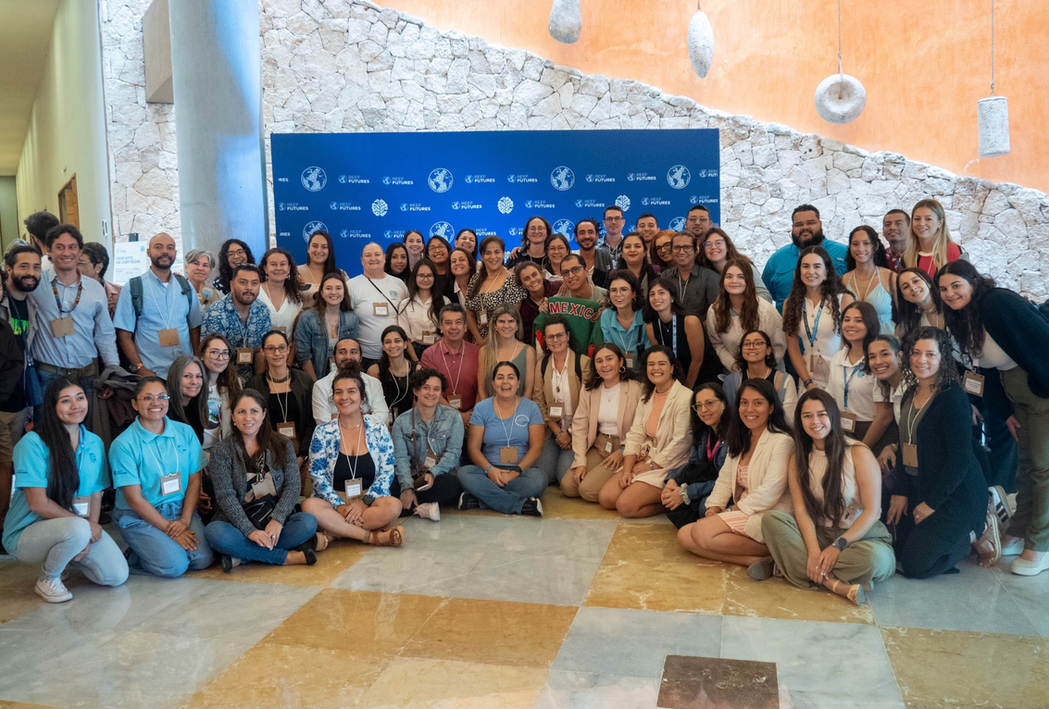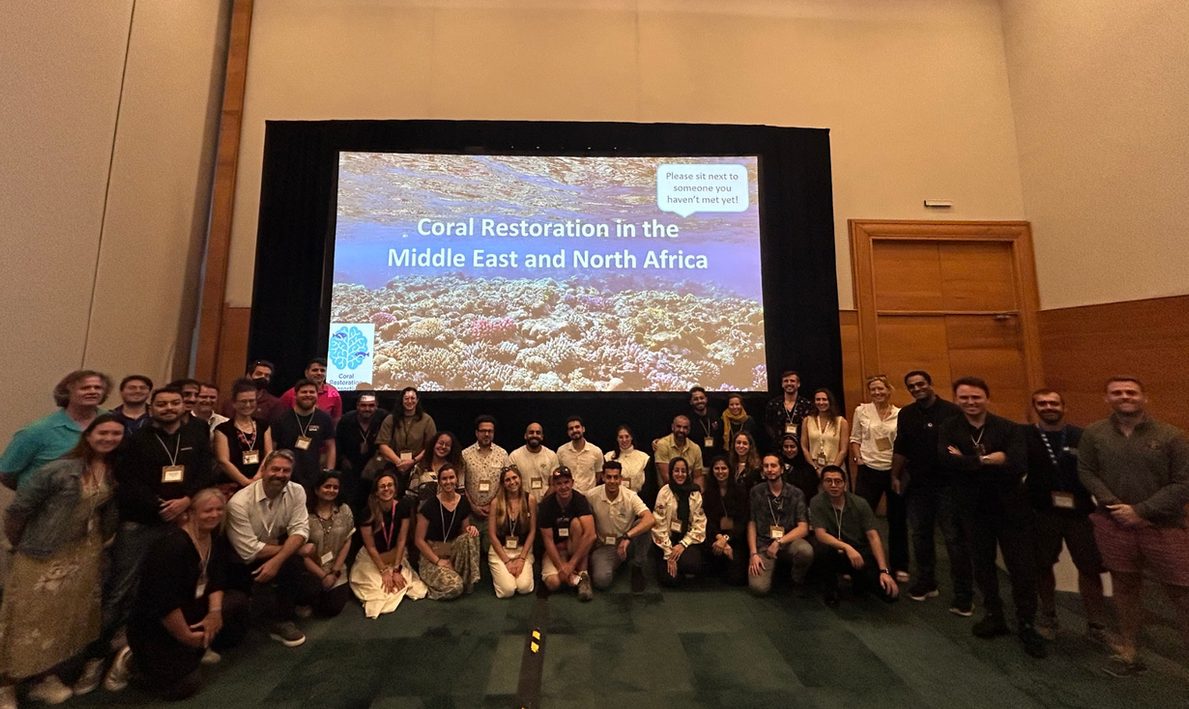
Photograph of a coral reef from the MENA region, taken by the Coral Restoration Foundation.
What is a Regional Group?
Our Regional Practitioner Network helps connect coral restoration practitioners with one another across a limited geography. Our “regions” are loosely defined by the Global Coral Reef Monitoring Network.
Regional groups comprise practitioners, researchers, and resource managers with a vested interest in coral restoration implementation, techniques, and scalability. They are a place where those involved in coral restoration come together and share the successes (and failures) of local efforts and grow together. Group members support each other, learn new techniques from each other, and together give life to reefs that would otherwise be on the decline in their region.

Our Regional Groups
We currently support 5 active Regional Groups. The CRC is proud to provide guidance, advice, and support to these groups. Our goal is to facilitate connections between practitioners within the same region so that we can speed the transfer of knowledge and increase the pace of restoration at a global scale.
Click on the buttons for each group to learn more!
Importance of Regional Connection
During November of 2023, the CRC sent out our biennial practitioner survey to the global restoration network. We asked a series of questions regarding the communities wants, needs, and interests for us to be better able to help.
We listened to the community and found out through one of our survey questions that people want to have greater connections within and between regions.
Creating regional networks of practitioners allows us to do just that! Knowledge is best shared between entities who experience the same or similar regional issues and these groups facilitate that transfer. Regional Groups help reef-dependent communities save their reefs.

Image from the Eastern Tropical Pacific Region, provided by Corales de Paz.






